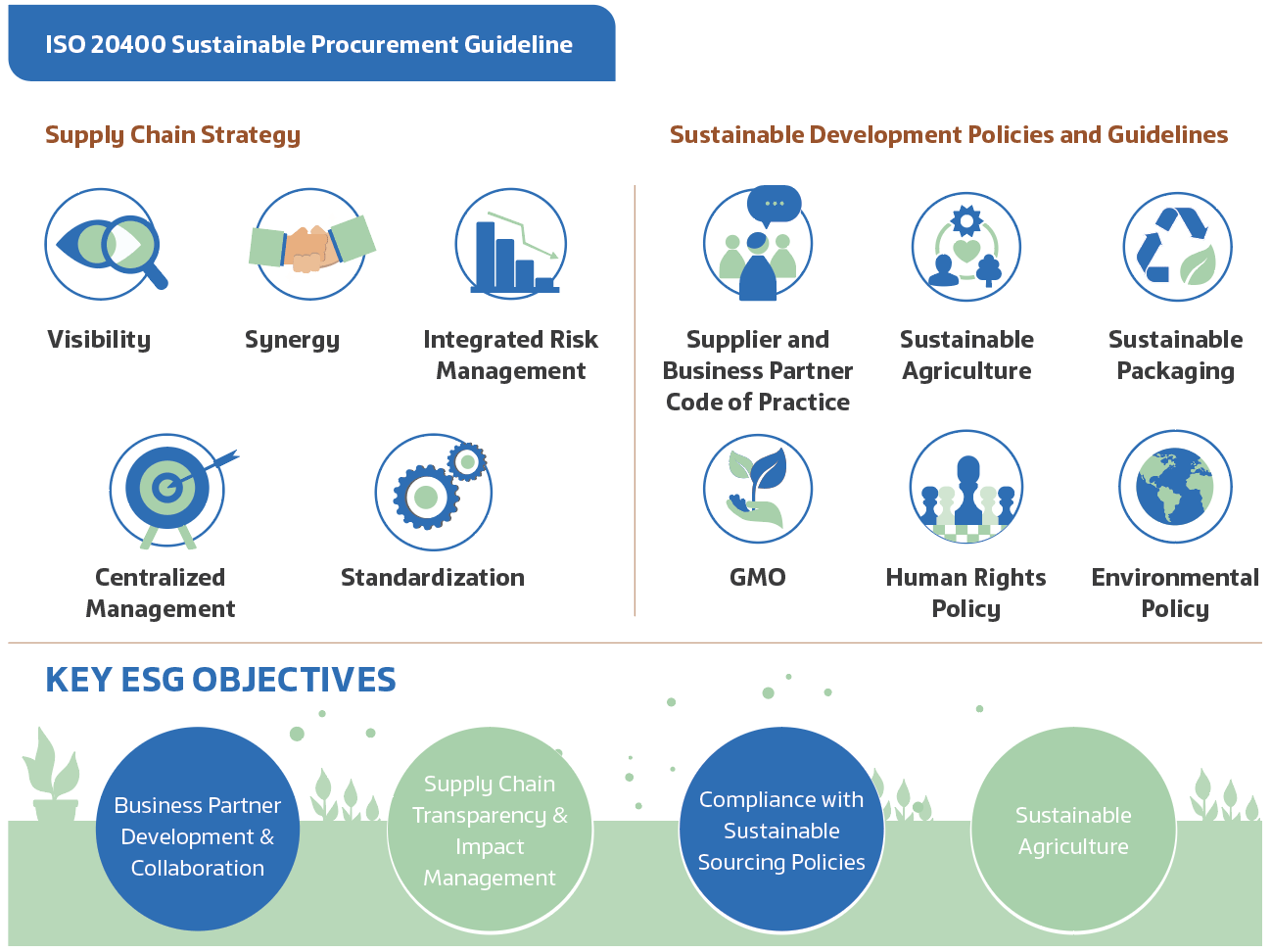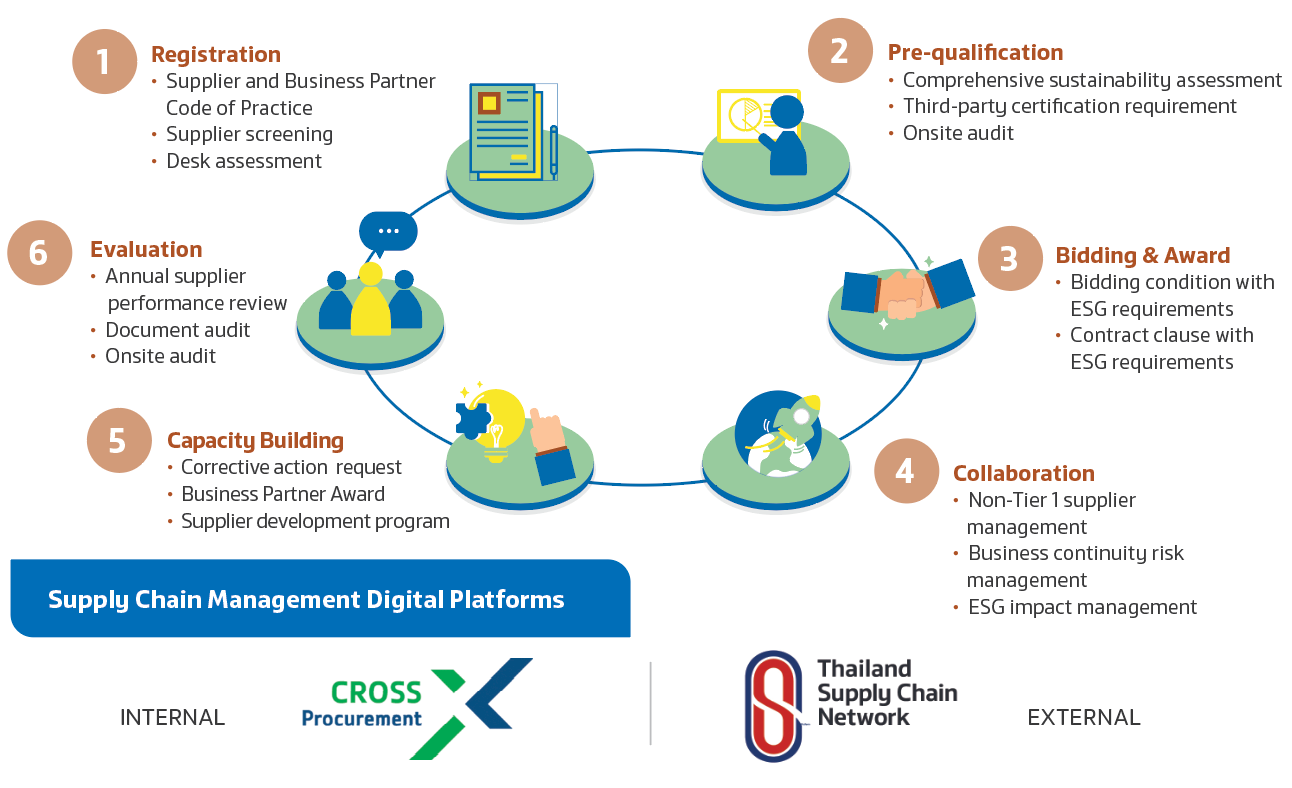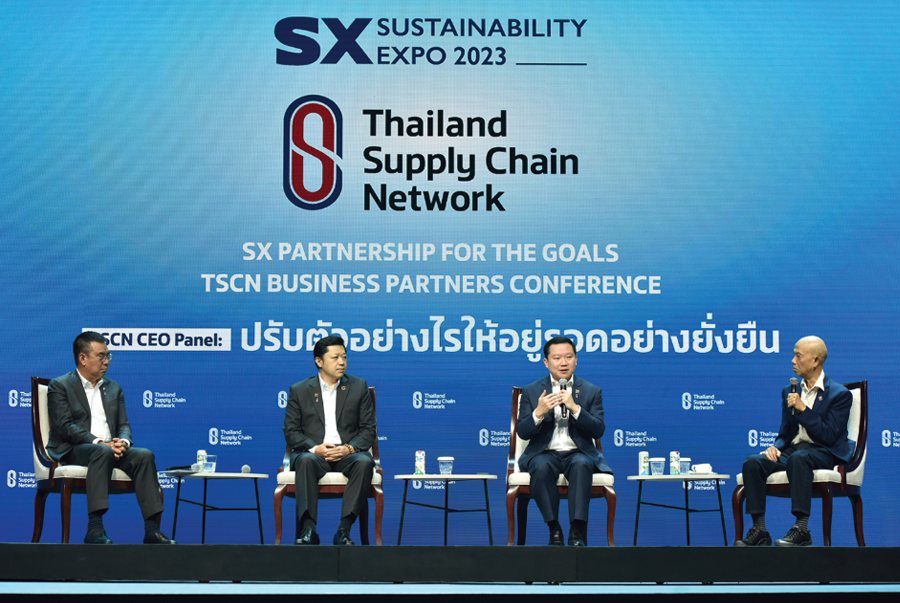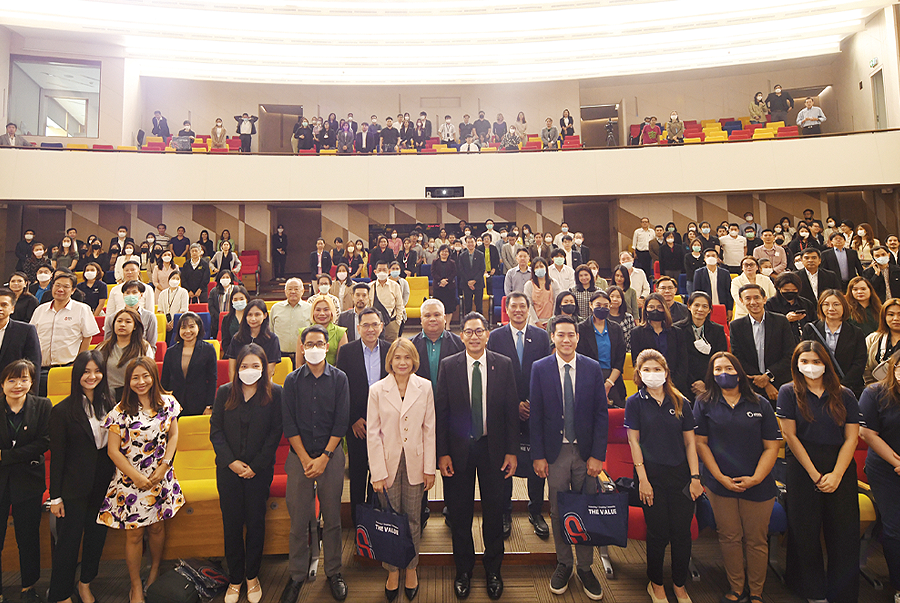ThaiBev’s supply chain management is supervised and governed by the Group Procurement Committee (GPC). GPC
is responsible for developing supply chain management strategy, raw material purchase planning, monitoring of ESG program implementation and its outcomes, and submitting
a quarterly report to the Executive Committee. GPC may escalate any significant supply chain-related issues to the Board of Directors to request the Board’s decision and approval, including sustainability and commercial aspects.
In addition, GPC has appointed the Group Procurement Working Team to carry out day-to-day procurement operations, which include procurement execution, sourcing risk management ESG program implementation and market monitoring.
ThaiBev’s supply chain management focuses on building supply chain resilience through strong collaboration with
our suppliers to manage economic, environmental, and social impacts. ThaiBev identifies key ESG issues in supply
chain management as follows: Climate Strategy, Water Management, Human Rights, Occupational Health and Safety, and Business Ethics. The issues are incorporated as part of the ESG program in supply chain management,
which includes supplier screening, supplier assessment, and supplier development.
ThaiBev has implemented its Supplier and Business Partner Code of Practice as the policy for responsible and sustainable business practices throughout the supply chain. The Code addresses fundamental ESG topics such as business ethics, environmental management, human rights, and occupational health and safety. The Code is applicable to 100% of ThaiBev’s suppliers and business partners to ensure that they uphold the same ethical standards and environmental and social responsibility as ThaiBev. Supplier assessment is conducted annually to review suppliers’ compliance with the Code. Additionally, ThaiBev expects its suppliers to urge their own suppliers to follow the requirements set out in the Code
and to establish independent procedures for vetting and evaluating potential suppliers with ESG considerations.
In addition, ThaiBev co-established the Thailand Supply Chain Network (TSCN), a business community for local entrepreneurs to connect, exchange knowledge, and strengthen the Thai business sector as a whole, in alignment
with the UN SDG 17: Partnerships for the Goals.



Following the founding of the Thailand Supply Chain Network (TSCN) by ThaiBev and its strategic business partners in 2019, TSCN continues to expand its community through the implementation of the TSCN Platform, an online business community which focuses on creating network effects for the local business sector by recruiting ThaiBev’s and TSCN co-founders’ suppliers and business partners to become TSCN members. The platform features a marketplace section, allowing members to publicize their products and services and do business with other members, a content section which gives members access to insights on leading sustainable business practices, shared by ThaiBev and other TSCN co-founders, and an event section where members can view past and upcoming supplier development activities and select to join or watch on demand. TSCN’s main objective is to strengthen local entrepreneurs with the focus on both economic and ESG aspects, in order to create a responsible and resilient supply chain ecosystem in Thailand, aligning business operations with sustainable development goals and enabling long-term growth.

In 2023, TSCN launched its supplier development program with 12 knowledge sharing activities and training courses. The program consists of various fundamental topics for today’s entrepreneurs, i.e., digital transformation, an introduction to ESG, how businesses can benefit from ESG adoption, greenhouse gas emissions accounting, sustainable packaging trends, and regulatory developments in the packaging industry. In addition, to create business value for TSCN members and drive green demand in the supply chain, TSCN has organized, for the first time, onsite business matching by inviting TSCN co-founders and members with sustainable packaging innovations and products to showcase their portfolio at TSCN Sustainable Packaging Day. Overall, 933 TSCN members and partners were engaged in the TSCN supplier development program throughout the year.

ThaiBev commits to regularly assessing 100% of our Tier 1 suppliers and increasing the number of suppliers completing online assessments by 2025, to better understand overall corporate risk exposure and to manage resources and develop suppliers more effectively.

ThaiBev aims to responsibly source 100% of our key agricultural raw materials
(i.e. malt and hops, sugar, broken rice, tea leaves, and palm oil) by 2025.

100% of strategic suppliers to have their own supplier code of conduct implemented.

100% of active suppliers to be assessed and examined for sustainability risks
by a third party or using third-party risk databases.
Net zero on Scope 3 emissions by 2050.

100% of active suppliers undergo supplier screening

100% of Significant suppliers are assessed using ESG criteria

100% of active Tier 1 suppliers
acknowledge and accept the
ThaiBev Supplier Code of Practice

83% of strategic Tier 1
suppliers have their own supplier code of conduct in place

100% of key agricultural raw
materials sustainably sourced






















